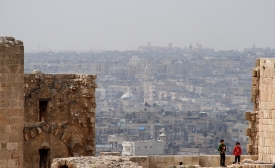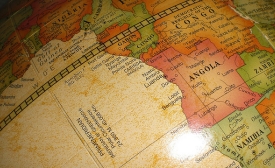united states

The diplomatic impasse between the United States and Iran is officially broken after thirty-four years of mutual recriminations and mistrust. The need for a reinvigorated U.S. public diplomacy is essential to forge a new relationship based on respect, understanding, and shared political, social, and economic interests. “Gangnam Style” public diplomacy is a simultaneous multiplatform approach to information sharing and engagement that utilizes various programs to stimulate people-to-people connections based on culture, education, and business.
The massive gathering of nearly 50 African heads of state and government in Washington allowed top U.S. officials to broker deals between American companies and African dignitaries, as well as press privately for action on security and human rights concerns. And at a time when Europe and major economies such as China are expanding their foothold in Africa, the conference gave the United States a chance to reinforce its long-standing connection to the continent.
While China and the United States have generally competed for influence in Africa, a new Chinese proposal might be looking to change that competition into greater cooperation, particularly in the area of international development. China has invited the United States to cooperate bilaterally on international development aid in Africa.

Maintaining order in some areas of the failed state is a constant struggle against anarchy. The Integrated Community Security Program (ICSP) may be the answer.
If the United States hopes to maintain a level of influence in the world commensurate with its economic and military strength, it must modernize and dramatically improve some of its soft-power foreign policy tools. Many of those tools have proven ineffective, and fail to reflect the transformational changes in the past two decades prompted by technology, connectivity, and global markets.
Watch this video about Ryan Duffy and Dennis Rodman’s trip to North Korea to exercise Basketball Diplomacy with Kim Jong Un.
The same diplomatic maneuvering is practiced in any series of international negotiations, but in this case, the fog of diplomacy was more dense than usual. One reason is that the Obama administration felt that it had to manage the public discourse about the negotiations in the United States to avoid losing control of public opinion to the pro-Israeli right in Congress.

To coincide with this week's U.S.-Africa Leaders Summit in Washington, D.C. hosted by President Obama, CPD has put together some of our key materials over the years touching on public diplomacy in and by African countries.
A Cautionary Tale of Soft Power Promotion
(Jul 2014) A review of Howard French's book on China's investment in Africa.







